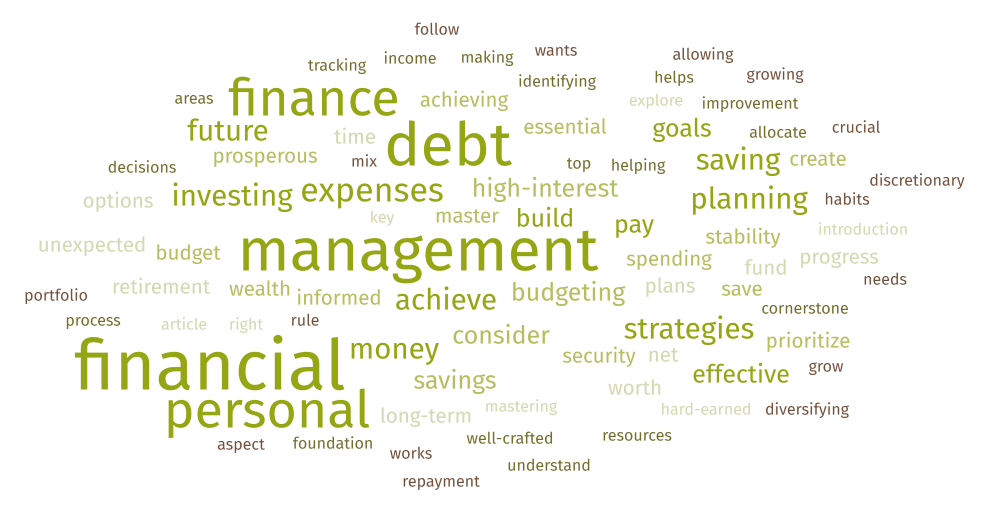Introduction to Personal Finance Management
Effective personal finance management is the key to achieving financial stability and security. With the right strategies, you can make the most of your hard-earned money, pay off debt, and build a prosperous future. In this article, we’ll explore the top strategies for personal finance management, helping you to master your money and achieve your financial goals.

The Foundation of Personal Finance Management
Budgeting is the cornerstone of personal finance management. It’s the process of tracking your income and expenses, identifying areas for improvement, and making informed decisions about how to allocate your resources. A well-crafted budget helps you:
- Understand your spending habits
- Prioritize needs over wants
- Save for the future
- Pay off debt
To create a budget that works, follow the 50/30/20 rule: 50% for essential expenses, 30% for discretionary spending, and 20% for saving and debt repayment.
Investing: Growing Your Wealth
Investing is a crucial aspect of personal finance management, allowing you to grow your wealth over time. By diversifying your portfolio and investing in a mix of low-risk and high-reward assets, you can:
- Build a nest egg for retirement
- Achieve long-term financial goals
- Increase your net worth
Consider consulting a financial advisor to create a personalized investment plan tailored to your risk tolerance and financial objectives.

Saving: Building an Emergency Fund
Saving is an essential component of personal finance management, providing a safety net for unexpected expenses and financial setbacks. Aim to save 3-6 months’ worth of living expenses in an easily accessible savings account. This fund will help you:
- Avoid debt when unexpected expenses arise
- Weather financial storms
- Achieve peace of mind
Debt Management: Paying Off High-Interest Debt
High-interest debt, such as credit card balances, can hinder your financial progress. To tackle debt effectively:
- Prioritize high-interest debt
- Pay more than the minimum payment
- Consider debt consolidation or balance transfer options

Financial Planning: Securing Your Future
Financial planning involves setting long-term goals and developing a strategy to achieve them. Consider:
- Retirement savings options (e.g., 401(k), IRA)
- Life insurance and estate planning
- College savings plans (e.g., 529 plans)
Conclusion:
Effective personal finance management requires discipline, patience, and persistence. By implementing these strategies – budgeting, investing, saving, debt management, and financial planning – you’ll be well on your way to achieving financial stability and security. Remember to stay informed, adapt to changing circumstances, and continuously monitor your progress. With time and effort, you’ll master your money and build a prosperous financial future.


